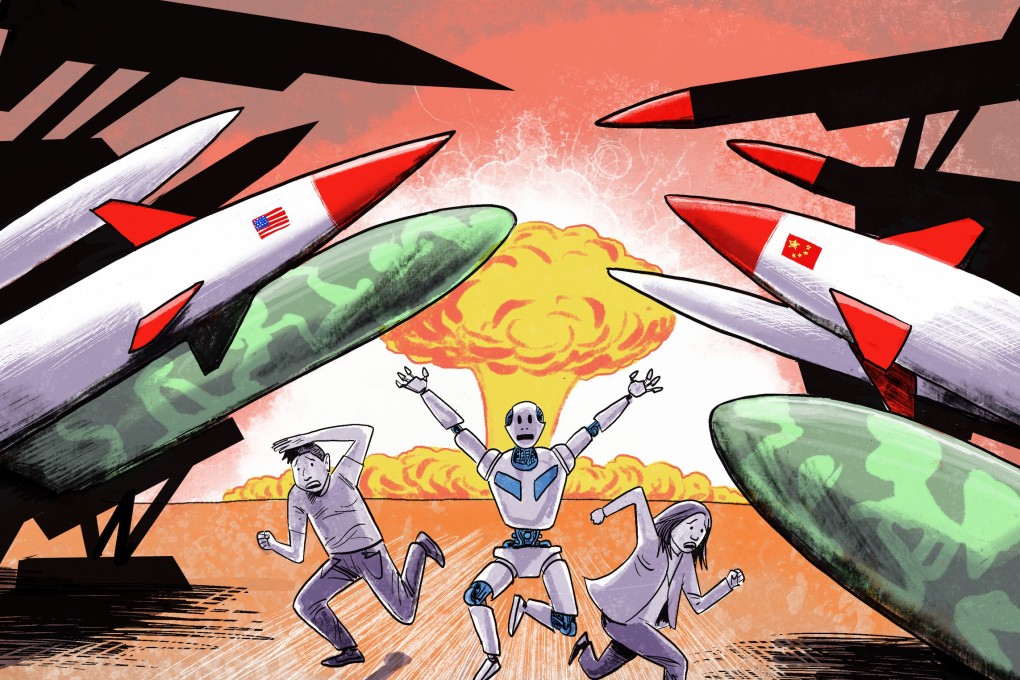Advertisement
Opinion | Biggest threat to humanity isn’t AI but US-China hostility leading to war
- Far from cooperating to address AI risks, the US and China are racing to weaponise the tech, making the prospect of a catastrophic world war a clear and present danger
Reading Time:4 minutes
Why you can trust SCMP
4

Artificial intelligence (AI) could evolve into an existential threat to human civilisation. But it is the risk of a US-China war that poses the most immediate danger to humankind. As we did 75 years ago when formulating the Universal Declaration of Human Rights, the global community must work together, to pull the 21st century back from the brink of an AI-assisted, but human-instigated, catastrophic world war.
In the letter calling for a pause in AI development, technological leaders warned that AI developers are “locked in an out-of-control race to develop and deploy ever more powerful digital minds that no one – not even their creators – can understand, predict or reliably control”. But the plea for a slowdown to deal with the “unknowable” risks that AI could pose to humanity is not working.
Elon Musk’s participation in the call for a moratorium, for example, has been criticised as a ploy by the billionaire to keep up with competitors. Despite acknowledging the risks, tech giants are unlikely to prioritise public welfare over corporate gains unless forced to do so. Last month, Sam Altman, CEO of OpenAI, the company behind ChatGPT, appealed to a US Senate subcommittee for the technology to be regulated.
Yet, historically, US lawmakers have been hesitant to regulate tech, concerned it could stifle innovation. And it remains unclear how Congress would proceed to oversee AI development. Meanwhile, the European Union and China have established regulatory frameworks to govern AI applications, albeit with different guardrails and varying rules. Experts, however, warn that an international norm is needed to mitigate the transnational risks posed by AI.
But, with the potential ban of TikTok in America and the deep mistrust between Washington and Beijing, the likelihood of forging a cooperative response seems remote. As with the environmental crisis, the tense geopolitical rivalry will impede the global community’s ability to collectively address the challenges posed by AI.
Despite talk of “de-risking”, the Biden administration is doubling down on restricting China’s access to advanced US technology. In response, President Xi Jinping has pledged to establish China as a self-reliant technological giant. The recent emergence of Chinese carmakers as leading players in the electric vehicle industry exemplifies the nation’s resolute determination.
Advertisement
